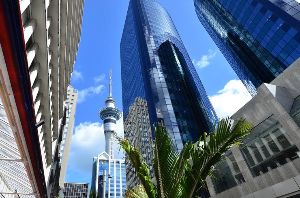Increasingly office workers are exploring an alternative – one that allows the freedom to work in different spaces according to needs and preferences, says a JLL report on features employees expect in the workplace.
“Rather than introduce completely new ideas, the pandemic has accelerated the realisation that work is not somewhere you go, but something you do, no matter where it happens,” says Ashleigh Duke, JLL New Zealand project and development services head.
“And it’s the workforce – empowered by technology and looking for companies to do more on supporting their wellbeing – who is now driving and accelerating change. Businesses need to reinvent themselves with the workforce front of mind.”
Many companies from tech to financial services have adopted or are moving to more hybrid work models. These incorporate a range of locations with modern designed spaces and strategies to provide a better workplace experience.
“This is the beginning of a golden age for workers,” says Duke.
“We’re starting to see traditional work and workstyles move away from the office and the evolution of the workplace into a people-centric environment.”
So what do today’s employees now expect?
1. Five days a week in the office – no
As the country has moved into another lockdown, video conferencing and digital collaboration tools have shown people can work from anywhere. JLL research shows that for many workers having a better work life balance is now considered more important than a comfortable salary.
Further, 71% say they’re expecting more flexible work schedules. For companies, it requires a shift in traditional people management.
This means looking beyond presenteeism (the act of being present at work even if one is too sick to be productive, or work beyond the expected hours) to new ways of keeping employees engaged and maintaining productivity.
2. Flexibility
Flexible working requires more flexible space, whether desks in third party co-working facilities in between offsite client meetings or touchdown spaces in smaller satellite offices to minimise travel times.
“Landlords are creating their own flexible space or partner with flexible space operators to meet workforce demand and new working and living patterns,” says Duke.
As typical workdays involve various tasks from group meetings to private conversations to answering urgent emails, not all are easy to do in crowded offices where meeting rooms are in short supply.
Workplaces are instead being transformed into different areas for collaboration, private work, or relaxation and furnished accordingly.
3. Coming to the office to be social
Many people like coming into the office to see their colleagues.
In hybrid models, offices will be the spaces where people interact, whether in group meetings or informal chats, with more focused work done at home.
Companies are increasingly introducing spaces and amenities to encourage interaction, such as breakout coffee areas.
JLL research found 49% of employees are expecting social spaces to boost their experience in the office.
4. Inadequate technology just doesn’t cut the mustard
With workplaces becoming increasingly digitised with shared documents on the cloud and more communication taking place on team collaboration software, weak internet signals and geriatric hardware are going to affect productivity and frustrate time-poor employees.
Hybrid models coming into play. This also applies to equipment used at home as well as in the office.
JLL’s research shows 75% of employees are expecting their company to support their work at home.
“Investing in technology is a non-negotiable,” says Duke.
“Companies need to have a digital-first mindset as technology will be the dominant enabler for enhancing the performance and productivity of both workers and the workplace.”
5. Health and wellbeing matters
Healthy workplaces are a priority and employees expect their offices to be safe both in terms of air quality and cleanliness.
Companies must also show how they’re supporting employees in the workplace through the amenities and services they offer – whether it’s free health check-ups, flexible work hours, or relaxation rooms.
“Now more than ever, the health and wellbeing of the workforce is paramount to business success,” says Duke.
“Meeting these expectations can not only help staff attraction but also aid retention.”




 Search
Search
